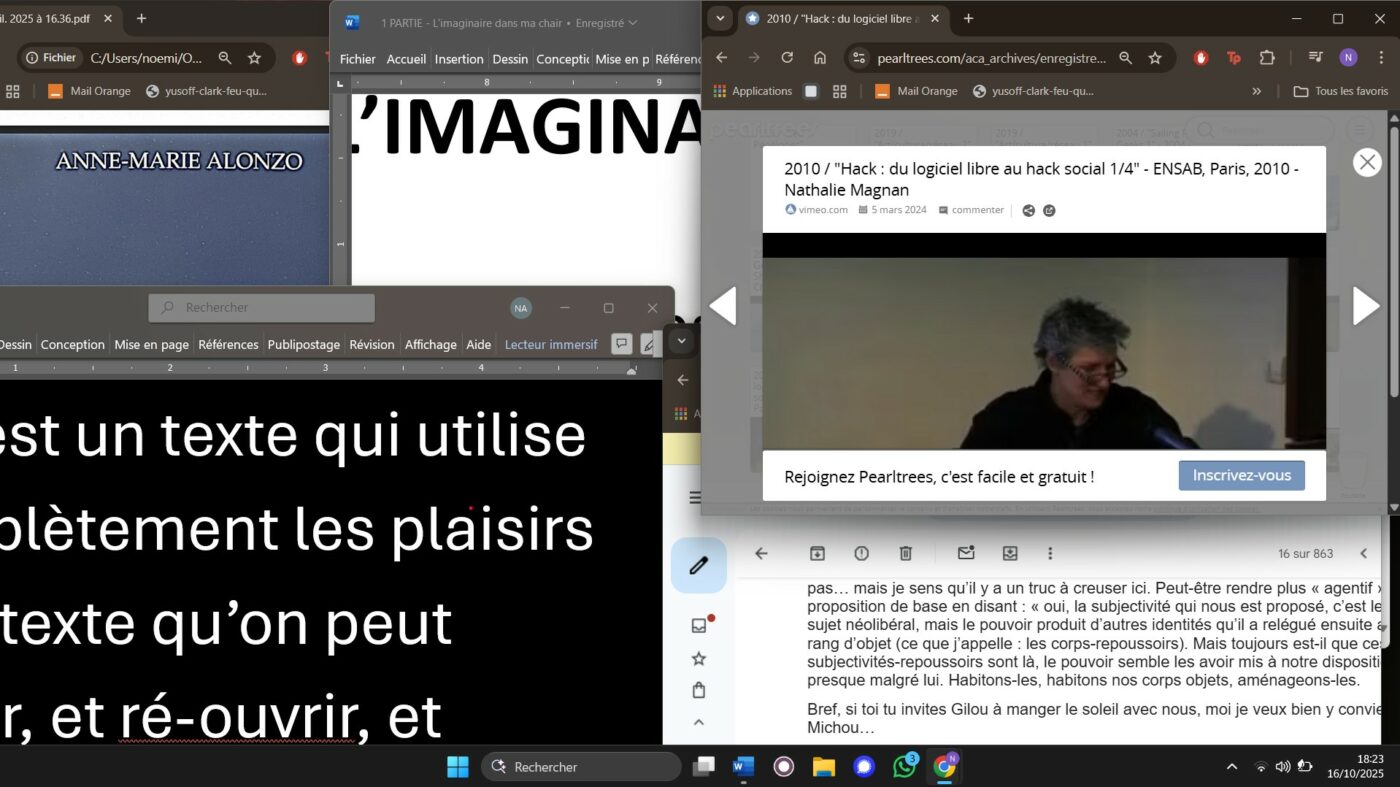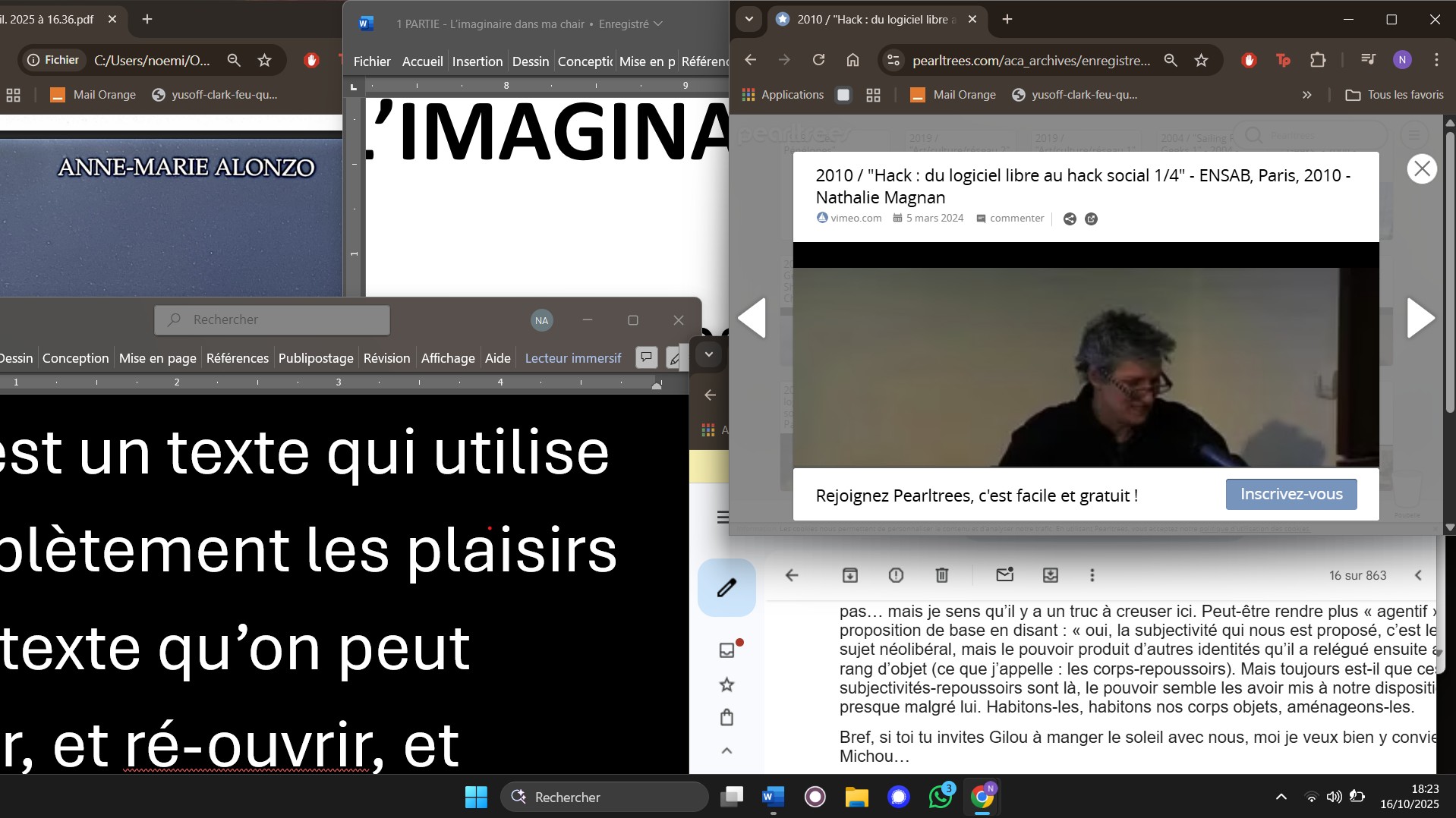
at Bétonsalon - centre of art and research
“When ghosts roam the Internet: cyborg memory, technologies, and intimate storytelling” – lecture by No Anger, artist
“This is the first text she wrote on her personal computer. And so, it’s a text that fully embraces the pleasures of a text that you can open, and reopen, and keep opening, and rewrite, and copy, paste, recopy, repaste, change, rotate. It’s a text that is not linear, to say the least…”
— Nathalie Magnan, about Donna Haraway’s Cyborg Manifesto
These words, taken from the 1999 broadcast of Les Pénélopes, accurately highlight how computer tools transform our relationship to text and, ultimately, the connections—until then barely considered—between writing and machines, memory and technology. While conventional wisdom often opposes memory and the written trace (associated with the past) to machines and technology (associated with the future), I propose to nuance this dichotomy by arguing that, from the invention of the printing press to the expansion of the Internet, our relationship to memory cannot be considered independently of machines. At the heart of issues such as the preservation, dissemination, access to, and selection of memory, three questions are raised: 1) the role of machines in the construction of a shared narrative of the past; 2) the shaping and social control of that memory, particularly through the media; 3) the resistances to this control and the struggle for alternative memories. Drawing on the archival collection of Nathalie Magnan, a lesbian activist, cyberfeminist, and media tactician, I will attempt to address the following question: if our memory is shaped by technologies, are we already cyborgs?
No Anger
No Anger is a queer and crip artist. Since 2015, they have been writing a blog entitled À mon geste défendant (In my defence), in which they develop a critique of ableism based on feminist and queer thinking and their own experience. In 2019, they obtained a PhD in political science from the École Normale Supérieure de Lyon. Through their artistic practice, which combines video art, performance and literary writing, they question the modes of expression and display of bodies which, embedded in a common language and imagination, are traversed by relationships of domination.
Lecture series conceived by Clélia Barbut, in partnership with Université Paris 8 Vincennes–Saint-Denis and Bétonsalon – Art and Research Center.
